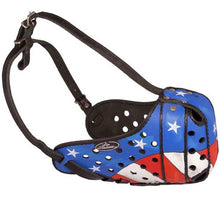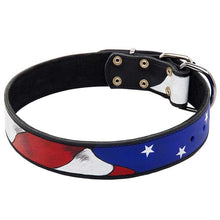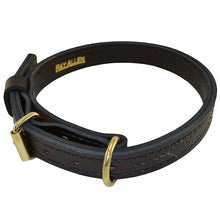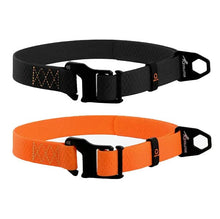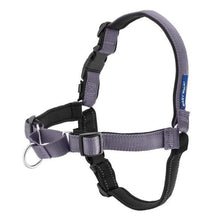7 Common German Shepherd Dogs Problems Solved

German shepherds are powerful, active, and intelligent working dogs. Because they are so smart and energetic, they require a physical and mental outlet for all their boundless energy.
German shepherds also require a loving yet firm owner to help guide them into adulthood and beyond. This is a breed that gives and demands respect. Without training, they can easily develop bad habits that get harder to break as they mature.
The best way to prevent problem behavior is to stop it before it starts. Some common problems that can be solved include:
1. Food guarding
One easy way to prevent food guarding is to hand feed your puppy. Puppies that are accustomed to having their food handled rarely develop food guarding behavior. Placing your hand into the bowl to deliver food also prevents guarding because the puppy is happy to receive food from you and perceives it as a reward.
Benefits of hand feeding also include teaching your dog to be gentle when taking food or treats, learning to be calm at mealtimes, improved impulse control, building trust, and the food can also be used as training treats.
You don’t have to hand feed your puppy every meal. Start with once or twice a day and as the dog learns and matures, try a few meals a week. As long as food guarding never begins, you probably will never have the problem.
2. Resource guarding
Resource guarding or possession aggression also includes food but here, we have listed them apart. As the name suggests, resource guarding is simply guarding a possession such as a toy, bed, item of clothing, personal space – anything the dog finds valuable.
Herding dogs, such as German shepherds, are natural guardians so it’s important to teach young dogs that guarding is not acceptable. Any lunging, growling, snarling, stiffening, or growling to prevent you from coming near their treasure needs to be nipped in the bud before it escalates.
To prevent resource guarding, when the dog is a puppy, offer them and handle their toys, beds, food bowel, and more. Whatever they love, take ownership of it and share it with them, rather the other way around.
As far as toys and chews, teach young pups that it is fun to share by trading high value items for a reward. Teach the puppy to drop the item in exchange for a treat and then give the item back so that the dog can enjoy it.
The idea is taking items are not to punish and should not be perceived by the dog as such. The goal is to send the message that it’s worthwhile to release things and that there is no reason to guard the item in the first place. If a dog begins guarding behavior that gets out of control, call a professional trainer.
3. Play biting
Herding dogs tend to play bite or mouth more than other breeds. German shepherds are notorious for play biting with their razor sharp teeth. As young pups, they love to herd and nip hands, feet, shoes, pants, and whatever else that moves.
German shepherds need to be taught bite inhibition through redirection. Redirection means redirecting them to something appropriate to bite or by placing their attention (eyes) onto you rather than their teeth while also giving them whatever command you choose that means, “don’t bite.”
Some easy ways to redirect their attention is to offer a toy, play a game, or redirect them and engage in some training. By carrying some dog food or treats on you, or offering a favorite toy, it’s easier to get their attention off of biting.
Appropriate chews are also really important for this breed. Durable rubber chew toys for aggressive chewers, bully sticks, food puzzles that can be stuffed with treats and chews that can be frozen for teething pups work well.
4. Destructive chewing
German shepherds have amazingly strong jaws and love to chew. They may chew for many reasons including natural instinct, boredom, teething, self soothing, it’s fun, lack of exercise, and health problems.
Preventing destructive chewing includes trying to determine why the dog is chewing. If the dog is lonely, bored, frustrated, anxious, or teething? Identifying the cause will help you come up with a solution.
A basic guideline to prevent this type of chewing in puppies is to not leave temping items out where the dog can find them in the first place. Next, be sure that the dog has plenty of appropriate chew toys, is getting plenty of exercise, and has their emotional and mental needs met.
German shepherds need regular exercise, training, play time, nurturing, grooming, healthy food, and lots of fresh water. They are very loyal and bonded dogs who need to be close to their family. When all these needs are met, chew toys, treats, and bones should be adequate for their chewing needs.
5. Digging
German shepherds dig out of boredom or because it’s fun. When they begin to dig, tell them no and redirect them onto something else that is stimulating, such as their toys.
The problem with digging is, they often do it when you’re not looking so it sometimes seems impossible to catch them in the act. The best way to stop the behavior is to prevent it from escalating and making sure the dog is getting plenty of exercise, mental stimulation, and attention.
If you can’t beat them, you can also join them. If your sheppy just lives to dig, you can create a digging pit or appropriate place to dig, such as a sandbox.
6. Separation anxiety
Separation anxiety can happen because German shepherds share such close bonds with their family. The best way to prevent this is establish a routine from the beginning.
Start by teaching your puppy that you will come back by returning after a very short time and slowly increasing your time away. Crate training can also be helpful. Also establish a schedule that your puppy gets used to, including meals and potty breaks.
Don’t make leaving an emotional event with lots of goodbye hugs and kisses. If you’re anxious, your dog will pick up on your anxiety. Do give a durable chew toy for aggressive, safe chewing while you’re away. A radio or TV being on can be helpful.
7. Jumping
German shepherds grow up to be powerful dogs so jumping is something that should not be encouraged in puppies. Fortunately, teaching a puppy not to jump is not difficult.
Start by never petting the dog when they jump up. Tell the dog down and turn away. Once four paws are on the floor, lavish the pup with all the love and attention you want.
In conclusion
The good news about German shepherds is that they want to work alongside you and have a deep desire to please. Despite being strong willed and willing to look for their own job to keep themselves busy, they rather connect with and be near you.
When you bond with them and direct their energy into positive things, such as training, exercise and playing games, they make the most remarkable pets in the world.
Please share these tips with other German shepherd lovers.




